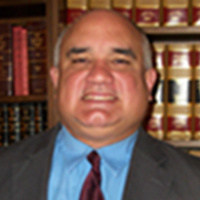Wilmer RICO Act Lawyer, Alabama
Sponsored Law Firm
-
 x
x

Click For More Info:
-
The Law Offices of Richard L. Cooper, P.A.
848 Brickell Avenue Suite 800 Miami, FL 33131» view mapDWI/DUI, Drug Trafficking, Felony Nationally Ranked Top 40 Under 40
With Richard L. Cooper you can expect a trusted confidant who will work diligently to fully understand your case and determine a road map to help you regain control of your life.
800-756-2781
Not enough matches for Wilmer RICO Act lawyer.
Below are all Wilmer Criminal lawyers.
Christine C. Hernandez
✓ VERIFIED *Status is reviewed annually. For latest information visit hereChristine graduated from Troy State University in 1990 with a Bachelor’s degree in Education and Sports Medicine. She moved to Mobile, as a graduate... (more)
John Grow
✓ VERIFIED *Status is reviewed annually. For latest information visit hereI graduated in 1993 at Faulkner School of Law with honors and was a member of the justice court. I have had my trial practice for 24 years which is a ... (more)
James Murray Byrd
✓ VERIFIED *Status is reviewed annually. For latest information visit hereMy name is James M. Byrd and I'm a Mobile, Alabama criminal defense attorney. I was born in Mobile and graduated from Jefferson Davis High School in M... (more)
Tim W. Fleming
FREE CONSULTATION
CONTACTBradley James Latta
FREE CONSULTATION
CONTACTBilly Clayton Messick
Elizabeth Vickers Addison
Bill Clayton Messick
Amy Beckerle Andrews
Rachel Macon
FREE CONSULTATION
CONTACT
 Richard L. Cooper Miami, FL
Richard L. Cooper Miami, FL AboutMiami Attorney at Law
AboutMiami Attorney at Law ServicesCriminal Defense
ServicesCriminal Defense


